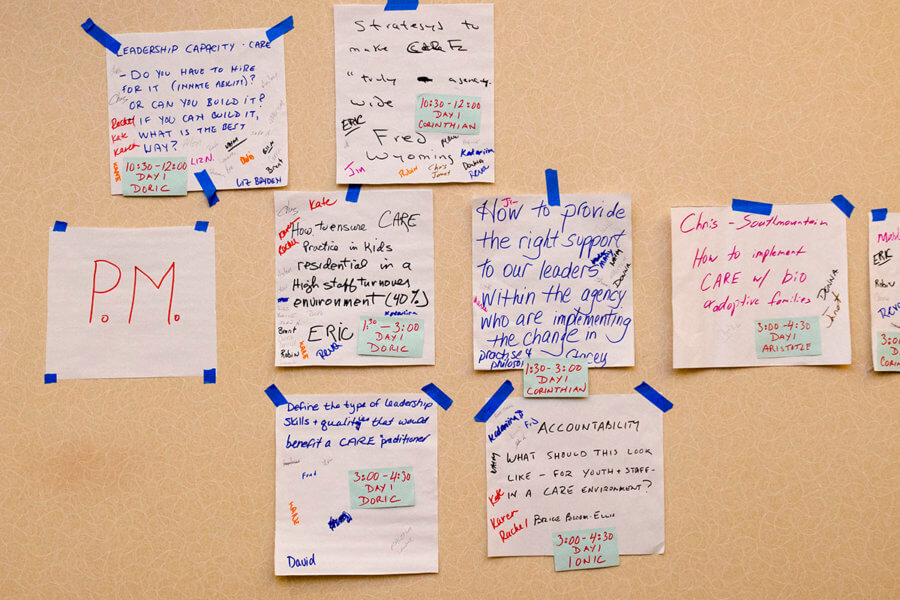
Martha Holden, Lisa McCabe, Debbie Sellers
Staff of the BCTR’s Residential Child Care Project (RCCP) participated in two major symposia at the European Scientific Association on Residential & Family Care for Children and Adolescents (EUSARF) conference in Porto, Portugal last month.
Deborah Sellers, RCCP’s director of research and outreach, and Lisa McCabe, a research associate, joined with researchers from Australia and Canada to discuss research on children’s perceptions of safety and their attitudes toward the adults who care for them.
And RCCP principal investigator and project director Martha Holden and discussed their experiences in implementing the Children and Residential Experiences: Creating Conditions for Change, or CARE, model – an evidence-based program developed by the RCCP to improve the social dynamics in residential care settings.
“The EUSARF conference is one of the most respected and valuable research meetings that we attend. It brings together a community of worldwide researchers concerned with vulnerable children,” said Martha Holden, a principal investigator with the RCCP who also attended the conference.
In the first symposium – “Perceptions of Safety in Child Welfare: Contrasting Child and Adult Perspectives” – Sellers and McCabe discussed the problems created when youth struggle to form bonds with their adult caregivers.
“The implications are critical for children in out-of-home placements, but are especially crucial for those children placed in therapeutic care since their perception of safety is a requirement for attachment and future developmental relationships,” Holden said.
During this symposium, participants who have a continued interest in examining ethical and methodological issues when studying children’s perceptions of safety formed a community of practice which will continue beyond the three or four days of the formal program. These communities of practice are supported by technology platforms that allow for meetings to discuss common issues.
In the second symposium – “Implementing and Sustaining Evidence Informed Program Models in Residential Settings: Journey of the CARE Program Model” – RCCP researchers and residential agency directors from Canada, the US and Australia described their experience in building and sustaining the CARE model over the past 10 years. To date, over 50 agencies in the United States, Canada, Australia and Northern Ireland have implemented the CARE program model. The symposium discussed the model and its co-construction with selected organizations and communities worldwide.
The CARE program model is built on principles that encompass developmentally appropriate relationships and trauma-informed care. It focuses on building family and child competence within ecologically sound environments.
“These program principles demand congruent adult to adult, adult to child, and child to child interactions and interpersonal dynamics that are reciprocal, coherent and congruent through all levels of the organization,” Holden said.









